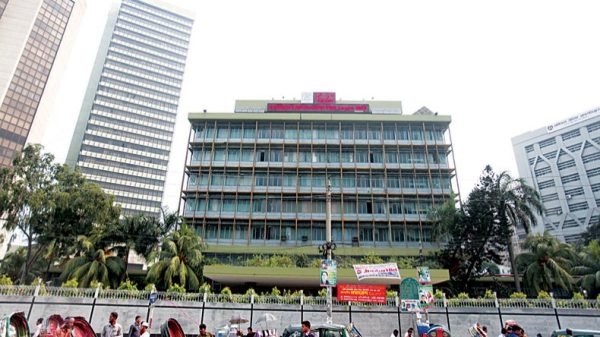Default loans rise by Tk 24,419cr in 3 months

- Update Time : Monday, October 2, 2023
- 63 Time View

The volume of non-performing loans in Bangladesh’s banking sector increased by nearly Tk 24,419 crore in just three months to hit a record Tk 1,56,039 crore by the end of June due mainly to widespread irregularities, poor monitoring, and governance practices.
Experts have expressed deep concerns about this relentless increase in default loans, emphasising the severe repercussions it poses for both the banking sector and the broader economy.
The surge in non-performing loans has led to a reduction in banks’ lending capacity, impeding credit flow to productive sectors and hampering economic growth consequently, they said.
According to Bangladesh Bank data released on Sunday, default loans soared to Tk 1,56,039 crore at the end of June 2023 from Tk 1,31,620 crore in March and Tk 1,20,656 crore at the end of December 2022.
It also represents a substantial increase from Tk 1,03,273 crore in December 2021 and Tk 88,734 crore in December 2020.
Selim Raihan from the South Asian Network on Economic Modelling expressed deep concern about this surge in default loans.
Raihan noted that the International Monetary Fund had also raised alarms about the escalating bad loans and governance issues within the banking sector.
The IMF has recommended that Bangladesh Bank work towards reducing non-performing loan ratios to below 10 per cent for state-owned commercial banks and below 5 per cent for private commercial banks.
Despite assurances from the central bank to address the issue and decrease default loans, the situation appears to be worsening, said Selim.
He termed the default loans as the banking sector’s biggest wound and lamented the lack of visible reform initiatives to control its surge.
This high level of default loans has multifaceted implications, undermining public confidence, depriving legitimate businesses of loans, and diminishing banks› capacity to provide credit to the private sector, he said.
Bankers acknowledged that a significant portion of these default loans were deliberately acquired by borrowers, leveraging their political, financial, and lobbying influence.
It displays a systemic issue, where borrowers exploit their connections and influence to secure loans without the intent or means to repay them.
Criticism is directed towards Bangladesh Bank, as it is responsible for supervising and regulating the banking sector to ensure its stability and adherence to prudent lending practices.
Former BB governor Salehuddin Ahmed criticised the central bank, stating that it had failed to minimise the growing non-performing loans.
He argued that the BB›s inadequate measures to control irregularities had undermined its effectiveness in curbing the rising tide of bad loans.
Salehuddin noted that while the rescheduling facility proved ineffective in reducing NPLs, the BB continued to provide this facility to defaulting borrowers.
The escalating non-performing loans diminish banks’ capacity to extend credit to profitable borrowers, obstructing their operational activities, cash flow, and profit-making ability.
Experts fear that a significant portion of defaulted loans might have been laundered abroad due to being acquired under anonymous names, making recovery all but impossible.
They believed that with improved corporate governance in the banking sector and efforts to mitigate the current economic crisis, the growth of non-performing loans might be curtailed.
The total loan disbursed was Tk 15,42,655 crore at the end of June 2023, and 10.11 per cent of them were classified.
According to financial analysts, if the written-off loans, the rescheduled loans, and the loans remaining unrecovered due to court proceedings are taken into account, the volume of default loans will be much higher.
The total distressed assets in the country’s banking sector reached Tk 3,77,922 crore, excluding loans that were unclassified by court orders, according to the central bank’s Financial Stability Report, 2022.
The figure was determined by adding up the aggregate of defaulted loans, outstanding rescheduled loans, and restructured written-off loans.
The amount of rescheduled loans in the country’s banking sector soared to Tk 2,12,780 crore at the end of 2022 amid relaxed rescheduling facilities by the Bangladesh Bank.
The net outstanding balance of written-off loans stood at Tk 44,493 crore.















